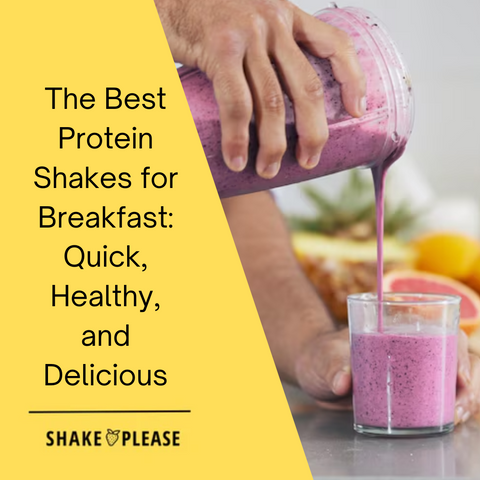
Introduction to Liquid Bases
Choosing a good liquid base is essential for creating delicious recipes and nutritious smoothies, especially those with a tropical flavor. Selecting the best liquids can enhance flavor, adjust consistency, and boost nutritional value, making your smoothies more enjoyable and beneficial.
Liquid bases can include various ingredients such as fruits, vegetables, and plant-based milks like almond milk, oat milk, and soy milk. The ideal liquid base depends on your personal taste preferences, dietary needs, and health goals.
It's important to be mindful of added sugar in various smoothie bases, as certain options like fruit juices and plant-based milks can contain high levels of added sugar, potentially affecting your nutrient intake .
A good liquid base should ideally be:
-
Low in calories, sugar, and fat
-
High in vitamins and minerals
-
Suitable for your dietary preferences and health objectives
For more tips on creating nutritious smoothies and a great smoothie recipe , explore our guide on making healthy smoothies.
Water and Low-Calorie Options
Choosing low-calorie liquid bases for smoothies can help you stay hydrated, support your health goals, and maintain optimal protein intake. It's also important to monitor your sugar intake when selecting these bases to avoid hidden calories and sugars. Here are some excellent options:
-
Water: A simple, hydrating, and calorie-free base, ideal for those watching their calorie intake. It preserves the natural taste of your smoothie ingredients, allowing their vibrant flavors to shine.
-
Coconut Water: Naturally low in calories and rich in electrolytes like potassium and magnesium, coconut water adds subtle sweetness and hydration to smoothies.
-
Unsweetened Almond Milk: A popular dairy-free option that’s low in calories and provides nutrients like vitamin E and magnesium. Almond milk adds creaminess without extra sugar.
-
Ice Cubes: Adding a few ice cubes can thicken and chill your smoothie, making it more refreshing without adding calories.
|
Liquid Base Option |
Benefits & Features |
|---|---|
|
Water |
Calorie-free, hydrating, neutral taste |
|
Coconut Water |
Low-calorie, electrolyte-rich, subtly sweet |
|
Unsweetened Almond Milk |
Dairy-free, low-calorie, creamy texture |
|
Ice Cubes |
Thickens smoothies, adds refreshing chill |
For more ideas on nutritious smoothie ingredients, explore our guide on healthy smoothie ingredients.
Understanding Average Calories in Protein Shake: What You Need to Know
Milk and Milk Alternatives
Milk and milk alternatives are popular liquid bases for smoothies, offering creamy textures and nutritional benefits. Here are some excellent options to consider:
-
Dairy Milk: A classic choice, dairy milk provides a creamy texture and essential nutrients like calcium, vitamin D, and high protein content, supporting bone health and muscle repair and growth. Additionally, cow's milk can help maintain blood pressure levels.
-
Almond Milk, Oat Milk, Soy Milk: These dairy-free alternatives offer creamy textures and nutritional benefits, making them ideal for those with dietary restrictions or preferences. Soy milk, in particular, may help reduce blood pressure.
-
Coconut Milk: Rich and creamy, coconut milk is high in healthy fats and medium-chain triglycerides (MCTs), providing sustained energy and satiety.
-
Greek Yogurt: Thick, creamy, and high in protein and probiotics, Greek yogurt is perfect for a post-workout smoothie.
|
Milk Base Option |
Benefits & Features |
|---|---|
|
Dairy Milk |
Creamy, calcium-rich, vitamin D, high protein |
|
Almond, Oat, Soy Milk |
Dairy-free, creamy, nutritious |
|
Coconut Milk |
Rich texture, healthy fats, MCTs |
|
Greek Yogurt |
High protein, probiotics, creamy texture |
For more delicious smoothie ideas, explore our fruit smoothie recipes.
Yogurt Options
Yogurt is a versatile and nutritious smoothie base, adding creaminess, flavor, and essential nutrients. Here are some excellent yogurt options to consider:
-
Greek Yogurt: A popular choice, Greek yogurt provides a tangy flavor and a significant boost of protein, ideal for post-workout smoothies.
-
Coconut Yogurt: A dairy-free alternative, coconut yogurt is rich in healthy fats and medium-chain triglycerides (MCTs), offering sustained energy and satiety.
-
Soy Yogurt: A plant-based option high in protein and isoflavones, soy yogurt can support immune function and overall health.
Including green vegetables like spinach and kale in your green smoothies can enhance nutrient density while maintaining flavor, making them a healthy option for various meals.
|
Yogurt Option |
Benefits & Features |
|---|---|
|
Greek Yogurt |
High protein, tangy flavor, creamy texture |
|
Coconut Yogurt |
Dairy-free, healthy fats, rich texture |
|
Soy Yogurt |
Plant-based, protein-rich, supports immunity |
Yogurt adds a rich texture and creamy consistency to smoothies, making them delicious and satisfying. For more nutritious smoothie ideas, explore our guide on healthy smoothie ingredients.
-
Green Tea: Using green tea as a smoothie base provides antioxidant properties, a mild caffeine boost, and earthy undertones that complement the flavor profile while enhancing overall wellness.

Fruit Juice Options
Fruit juice can be a tasty and refreshing liquid base for smoothies, but it’s important to choose wisely due to sugar content. Here are some considerations:
-
Natural Sweetness: Orange juice, apple juice, and other fruit juices add natural sweetness and flavor to smoothies. Using whole fruit instead of fruit juice can provide additional fiber, which helps regulate blood sugar and promotes satiety.
-
Choose Wisely: Always select 100% fruit juice without added sugars and consume it in moderation to balance your smoothie’s nutritional profile. Be mindful of the natural sugar content and balance high and low glycemic fruits to manage sugar levels effectively.
|
Fruit Juice Option |
Benefits & Features |
Recommendations |
|---|---|---|
|
Orange Juice |
Vitamin C-rich, sweet, refreshing |
Choose 100% juice, moderate use |
|
Apple Juice |
Naturally sweet, flavorful |
Choose unsweetened, moderate use |
|
Other Fruit Juices |
Adds flavor variety, vitamins |
Avoid added sugars, moderate use |
Fruit juice can be a good option for those seeking a sweet and refreshing smoothie base, but balancing it with other nutritious ingredients is crucial. For delicious smoothie combinations, check out our fruit smoothie recipes.
Dairy-Free and Alternative Options
For those with dietary restrictions or preferences, there are plenty of dairy-free and alternative options to choose from when making smoothies. Almond milk, oat milk, and coconut milk are among the most popular choices, each offering a creamy texture and natural sweetness that enhances the flavor of your smoothie. These alternatives are perfect for those who are lactose intolerant or simply prefer a plant-based diet.
Soy milk and hemp seed milk are also excellent options, providing a boost of protein and essential nutrients. Soy milk, made from soybeans, is rich in protein and can support muscle repair and growth, making it a great choice for post-workout smoothies. Hemp seed milk, derived from hemp seeds, is packed with omega-3 and omega-6 fatty acids, which are beneficial for heart health.
When choosing a dairy-free alternative, it’s important to consider the nutritional value and ingredients to ensure it aligns with your health goals and preferences. For instance, unsweetened almond milk is low in calories and sugar, making it a healthy choice for those watching their calorie intake. Coconut milk, on the other hand, is higher in healthy fats, providing a rich and satisfying texture.
By exploring these dairy-free alternatives, you can enjoy delicious and healthy smoothies without compromising your dietary needs. Whether you prefer the nutty flavor of almond milk or the tropical flavor of coconut milk, there’s a dairy-free option to suit every taste.
Guide to Creating Protein Smoothies without Milk
Characteristics of a Good Liquid Base
A good liquid base for smoothies should meet several key criteria to ensure your drink is both delicious and nutritious. Firstly, it should be low in calories and sugar content. Unsweetened almond milk and coconut water are excellent choices in this regard, as they provide hydration and a subtle flavor without adding unnecessary calories or sugar.
The liquid base should also offer a creamy texture, which can be achieved with traditional dairy milk or dairy-free alternatives like oat milk and soy milk. These options not only enhance the mouthfeel of your smoothie but also contribute to its overall richness and satisfaction.
It’s important for the liquid base to complement the natural flavors of the smoothie ingredients while providing vitamins and minerals . This means choosing a base that allows the taste of whole fruits and vegetables to shine through. For example, coconut water has a mild, slightly sweet flavor that pairs well with tropical fruits, while almond milk’s neutral taste makes it versatile for various smoothie recipes.
Health benefits are another crucial factor. A good liquid base should provide essential vitamins and minerals, such as vitamin D and calcium found in whole milk, or the electrolytes in coconut water. Greek yogurt, with its probiotics, can support immune function and digestive health, making it a valuable addition to your smoothie.
Ultimately, the best liquid base is one that aligns with your individual taste preferences, dietary needs, and health goals. Whether you opt for a dairy-free alternative like almond milk or a traditional option like cow’s milk with a tropical flavor , the right liquid base can elevate your smoothie to a nutritious and enjoyable part of your daily routine.
Smoothie Texture and Consistency
The liquid base significantly impacts your smoothie’s texture and consistency, influencing thickness, creaminess, and refreshment. Consider these tips:
-
Ice Cubes & Frozen Fruit: Adding ice cubes or frozen fruit thickens and chills smoothies, making them refreshing and satisfying.
-
High-Speed Blender: Using a high-speed blender helps break down ingredients, creating a smooth, creamy texture.
-
Choosing the Right Base: Selecting the appropriate liquid base, such as traditional milk or plant-based options like almond or oat milk, helps achieve a creamier texture, enhancing both flavor and nutritional value.
-
Nut Butter: Adding nut butter can contribute to a creamier texture and boost the nutritional value of your smoothie, providing additional protein and healthy fats.
|
Ingredient/Method |
Effect on Smoothie Texture |
|---|---|
|
Ice Cubes |
Thickens, chills |
|
Frozen Fruit |
Creamy, thick texture |
|
High-Speed Blender |
Smooth, creamy consistency |
For more blending tips, explore our guide on smoothie ingredient order.
Creating a Healthy Smoothie
A healthy smoothie should be balanced, providing protein, healthy fats, and complex carbohydrates. Here’s how to build a nutritious blend:
-
Balanced Ingredients:
Start with fresh fruits, vegetables, and other nutrient-dense ingredients for a well-rounded smoothie. Breakfast smoothies are a versatile meal option that can be tailored with a variety of fruits, vegetables, and healthy fats. -
Liquid Base Selection:
Choose your liquid base carefully, as it significantly impacts the nutritional value and calorie content of your smoothie. Options like almond milk, coconut water, or dairy milk can help you achieve the right consistency and nutrition. -
Support Health Goals:
Healthy smoothies can support your overall health by providing essential nutrients and sustained energy. Try blends like chocolate peanut butter banana, vanilla berry, or pineapple berry for a convenient, nutrient-packed option. -
Include Healthy Fats:
Adding healthy fats such as nut butters and avocados enhances both the nutritional value and taste of your smoothies. These ingredients contribute creaminess, flavor, and essential fatty acids important for heart health.
By following these guidelines and exploring delicious options like strawberry banana protein smoothies, you can create balanced smoothies that support your health and well-being.
|
Nutrient Type |
Ingredient Examples |
|---|---|
|
Protein |
Greek yogurt, protein powder |
|
Healthy Fats |
Avocado, coconut milk |
|
Complex Carbohydrates |
Oats, bananas, berries |
For nutritious smoothie ideas, check our healthy smoothie ingredients.
Liquid Base and Nutrition
The liquid base significantly influences your smoothie’s nutritional value, providing essential vitamins and minerals. Consider these points:
-
Vitamin-Rich Bases: Choose nutrient-rich bases like coconut water or almond milk to support overall health.
-
Balanced Ingredients: Add fresh fruits and vegetables to create balanced, nutritious smoothies. Green smoothies, packed with green fruits and vegetables, are a great option for enhancing overall nutritional content.
-
Health Benefits: A well-chosen liquid base supports immune function, energy production, and overall wellness. Almond milk and hemp seed milk, rich in essential nutrients like vitamin E and zinc, are particularly beneficial for the immune system.
|
Liquid Base Option |
Nutritional Benefits |
|---|---|
|
Coconut Water |
Electrolytes, potassium, magnesium |
|
Almond Milk |
Vitamin E, calcium, low-calorie |
|
Dairy Milk |
Calcium, vitamin D, protein |
Explore more nutritious options in our fruit smoothie recipes.
Common Mistakes to Avoid
Avoid these common smoothie-making mistakes, like forgetting to add a few ice cubes, to ensure your fruit smoothies remain nutritious and satisfying:
-
Excessive Sweeteners: Using too much sugar or honey makes smoothies overly sweet and calorie-dense. Be mindful of added sugar in your ingredients.
-
High-Calorie Bases: Choosing liquid bases high in calories, sugar, or fat negatively impacts nutritional value. Opt for products with no added sugar to maintain health benefits.
-
Unbalanced Ingredients: Not balancing ingredients leads to unsatisfying smoothies.
-
Low-Quality Ingredients: Using processed or low-quality ingredients negatively affects taste and nutrition.
-
Nut Allergies: When choosing liquid bases like almond milk, consider nut allergies. Almond milk is nutritious but may not be suitable for individuals with nut allergies.
|
Mistake |
How to Avoid It |
|---|---|
|
Too Much Sugar |
Limit sweeteners; use natural sweetness |
|
High-Calorie Liquid Base |
Choose low-calorie, nutritious bases with no added sugar |
|
Unbalanced Ingredients |
Include protein, fats, and carbohydrates |
|
Low-Quality Ingredients |
Opt for fresh, whole-food ingredients |
|
Nut Allergies |
Select nut-free alternatives if necessary |
Tips for Using Liquid Bases
Follow these practical tips to choose and use liquid bases effectively:
-
Start Small: Begin with a small amount of liquid base, adding more as needed for desired consistency.
-
Experiment: Try different liquid bases to find your favorite combinations.
-
Consider Nutrition: Evaluate nutritional value, calorie content, and ingredients when selecting a base. Using whole fresh fruit not only enhances flavor but also provides essential vitamins, minerals, and fiber, contributing to a healthier smoothie compared to relying solely on fruit juice, which lacks fiber and can be high in sugar.
-
Be Creative: Don’t hesitate to experiment with new liquid bases and ingredients for unique, delicious smoothies.
-
Maple Syrup: Consider the versatility of maple syrup as a sweetener. Derived from the sap of maple trees, it offers health benefits and a low-calorie content, making it an intriguing option for smoothie recipes.
|
Tip |
Recommendation |
|---|---|
|
Start Small |
Adjust liquid gradually for ideal texture |
|
Experiment |
Try various bases to discover favorites |
|
Consider Nutrition |
Choose nutrient-rich, low-calorie bases |
|
Be Creative |
Explore new ingredients and combinations |
|
Maple Syrup |
Use as a versatile, low-calorie sweetener |
Conclusion
Choosing the right liquid base is essential for creating delicious, creamy smoothies that are also nutritious. Keep these points in mind:
-
Personal Preferences: Consider your taste preferences, dietary needs, and health goals when selecting a liquid base.
-
Experimentation: Trying different liquid bases and ingredients helps create unique, tasty smoothies.
-
Health Benefits: Smoothies with the right liquid base and ingredients support immune function, energy production, and overall health, making them a valuable addition to a healthy lifestyle.
For more smoothie-making tips, explore our guide on making healthy smoothies.




